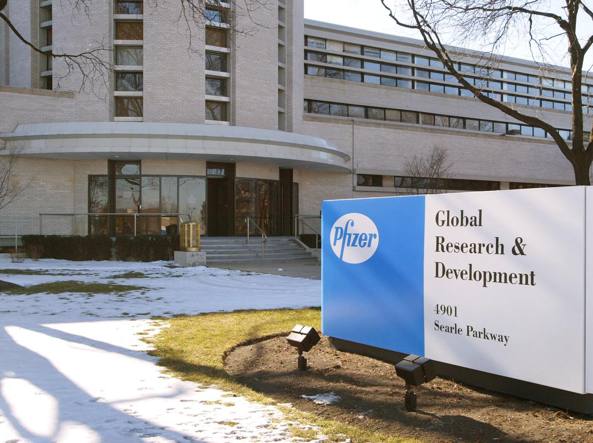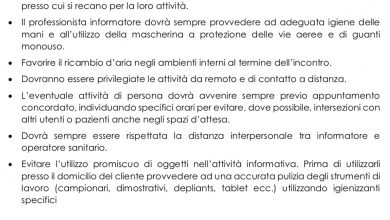
It is already the largest global group in the sector but is now trying to acquire AstraZeneca with bursts of raises that have already brought the offer over 100 billion: a choice imposed by the expiry of patents
New York A few hours were enough for the board of AstraZeneca, number two in the British pharmaceutical industry, to reject "without hesitation" the second takeover offer in a few months by the American Pfizer. The operation would have created the world's largest group in the sector and Ian Read, 61 years old, of which 36 at Pfizer and three as chief executive officer, had put 106.5 billion dollars on the plate, that is 8 billion more than the previous one proposal presented in January. But still too few, according to Pascal Soriot, the managing director of AstraZeneca, according to whom the value of the group and of the new drugs developed by its 9,000 researchers would be minimized. Read said he was "very disappointed" by the British reaction, but hinted that he will not abandon the offensive. "We want to buy, they want to sell: it is clear that they will always say that our proposal underestimates AstraZeneca", joked the chief executive. Under UK takeover legislation, Pfizer has until May 26 to up the ante. And while the management has initiated a series of political contacts to smooth over the obstacles and convince Prime Minister David Cameron that neither employment nor research will be penalised, the first hypotheses are being made on the amount of the third offer. If the former was £46.61 a share and the latter £50, the final share could be £55, or a total value of $110-120 billion. And at the same time the percentage of the amount paid in cash to Astro-Zeneca shareholders, who consider the 32 percent of the latest proposal insufficient, could be raised. Of course, even this package would not be much higher than the current market values of AstraZeneca, whose prices have seen a flame in recent months and whose market capitalization is close to 100 billion dollars. However, the most widespread opinion on Wall Street is that, in the end, the deal will go through. A doubt remains: how to explain Pfizer's obstinacy? It has perhaps been infected by the fever of maxi-mergers which since the beginning of 2014 has already led to agreements for over a trillion dollars around the world, of which 127 billion only for Big Pharma, as the protagonists of the sector are called pharmaceutical? In reality, there is much more to it than the mega-management delusions of Manhattan's 42nd Street, where Pfizer is based. Founded in 1849 by cousins Charles Pfizer and Charles Erhart, the company had initially specialized in the production of citric acid, mainly produced with calcium citrate imported from Italy. The commercial difficulties associated with the First World War prompted Pfizer to develop other sectors and it was the production of penicillin that gave the company a new impetus in the 1940s. From the research laboratories built in 1960 in Groton, Connecticut (where there is also the large US Navy submarine base), innovative drugs then began to emerge: the anti-inflammatory Feldene, and in the following decades also the anti -depressant Zoloft, the anti-cholesterol Lipitor, Norvasc, Zithromax, Aricept, Diflucan and obviously also Viagra, which has become one of the group's flagship products, contributing significantly to its expansion. Thanks to the financial resources, Pfizer has in fact managed to conquer other companies in the sector - Warner-Lambert in 2000, Pharmacia in 2003, Wyeth in 2009 - thus acquiring immense proportions. Now it has 78 thousand employees, a capitalization on Wall Street of over 200 billion dollars (just for comparison, the Fiat Chrysler group has a capitalization of only 13 billion) and a turnover of 50 billion. However, in spite of figures and size, the chief executive Ian Read is in a delicate situation, as confirmed by the group's quarterly data published last week. Between January and March, Pfizer's revenues fell 9 percent compared to the same period in 2013, to $11.35 billion: $730 million less than analysts' forecasts. Profits even fell by 15 percent (2.3 billion). Blame? Above all, the drop in sales of patent expiring medicines, first of all Viagra, subjected to competition from generics, while it is still unclear which new generation medicines could come out of its laboratories where more than 10,000 researchers work. There is talk of a meningitis vaccine, a back pain pill, a breast cancer treatment, and another cholesterol-lowering drug. But everything is still uncertain, nebulous. And also for this reason Read would have thrown himself into the conquest of AstraZeneca. The first goal is in fact to also have new generation anti-cancer drugs, based on immunotherapies, developed by researchers in England and Sweden, where Astra was based before the merger in 1999 with Zeneca. Read's second objective is of a fiscal nature: his dream is to leave the operational headquarters of the new Pfizer-AstraZeneca group in New York (and the listing on Wall Street), instead transferring the registered office to Great Britain, so, not only to take advantage of the British tax rates on corporate profits, which are cheaper than the American ones, but also to be able to report 70 billion dollars of profits accumulated in foreign offices to the balance sheet. In fact, if Pfizer brought them directly back to the United States, it would be forced to pay a prohibitive amount of taxes. These tax ploys have raised quite a few controversies in Britain, where Ed Miliband's Labor party has accused David Cameron's Conservative government of rooting for Pfizer. The prime minister defended himself by recalling that he had summoned the executives of the two groups to discuss the commitment to maintain research centers in the country, while Vince Cable, minister for "business", declared: "The future of our country is in the knowledge economy, not as a tax haven”. In theory, London could block the merger, or impose changes to its future arrangements, by relying on a clause in defense of the "national interest" contained in the ad hoc legislation. If successful, it would still be the largest takeover of a British company by a foreign group, leaving Richard Sykes' GlaxoSmithKline, which remains the first British pharmaceutical company, to deal with Pfizer. There has also been a debate in the United States on the fiscal implications of the Pfizer-AstraZeneca deal. Republicans and representatives of large companies recalled, on the one hand, how penalizing American legislation is for companies projected abroad (almost all large groups have mountains of billions of dollars parked outside national borders), on the other, how it can be detrimental to competition between different tax systems. There is also a third justification for Read's move: it concerns Pfizer's internal prospects. Since taking up his position at the top, the manager has already profoundly restructured the group, proceeding with some divestments, starting with veterinary products, and reorganizing it into three major divisions. But in the meantime, the American healthcare reform suggests greater difficulties in traditional business, while some Pfizer patents are about to expire, thus opening the door to competition from generic products. Hence the interest in relaunching the group through a maxi-merger. Some analysts point the finger at some difficulties that could arise in integrating two such large groups. “But we already have a lot of experience in mergers like this”, cuts Read, whose real obstacle remains that of the price. Some of the most important figures of Pfizer and AstraZeneca, protagonists of the challenge that the world "corporate" world is passionate about Below, a Pfizer research laboratory in the United States: the group invested 6.7 billion dollars in R&D in 2013 NUMBER ONE Pfizer, with headquarters in New York, is already today the largest pharmaceutical group in the world. It has grown in recent years thanks to important acquisitions such as Warner-Lambert and Pharmacia, the group into which the Italian Carlo Erba had previously merged





